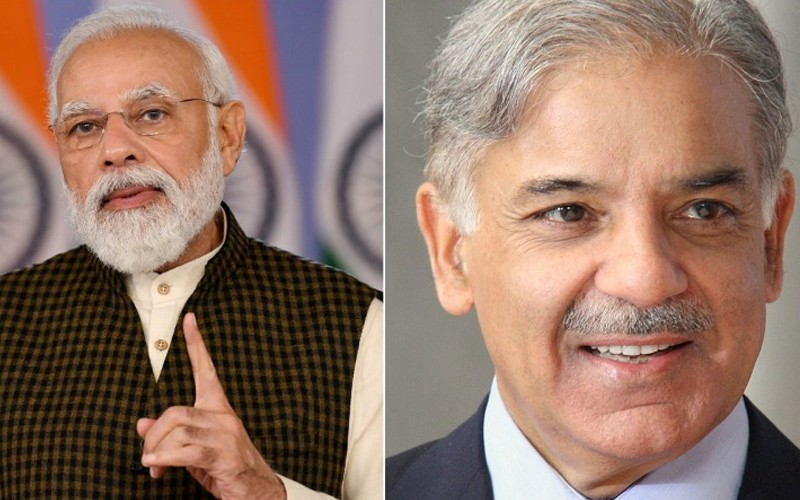
World Bank data shows India’s poverty plunges while Pakistan sinks deeper
New Delhi: India's sharp decline in poverty over the past decade stands in stark contrast to Pakistan's deepening economic woes, underlining the impact of governance, leadership, and fiscal priorities, World Bank’s recent data shows.
While India's development model has focused on growth and poverty alleviation, Pakistan’s trajectory has been defined by financial mismanagement, rising debt, and its continued investment in terror-linked activities, according to the data, as reported by NDTV.
What the data reveals
The World Bank recently updated the global poverty threshold from $2.15 to $3 per person per day to better reflect inflation and economic realities. Even with this higher benchmark, India’s progress remains impressive.
According to the World Bank’s Poverty and Shared Prosperity report, India reduced extreme poverty from 27.1% in 2012 to just 5.3% in 2022.
The number of people living in extreme poverty fell from 344.47 million in 2011–12 to 75.24 million in 2022–23—marking a massive reduction of 269 million people, more than Pakistan’s entire population.
By contrast, Pakistan has seen a reversal in fortunes. Between 2017 and 2021, the proportion of its population living in extreme poverty jumped from 4.9% to 16.5%.
Analysts believe the true picture may be even worse, given Pakistan’s outdated Household Income and Expenditure Survey.
The broader poverty headcount—based on an income of $4.2 per person per day—rose from 39.8% in 2017 to over 44.7% in 2021.
Debt and dependence
Pakistan’s economy remains heavily reliant on external aid and loans. It has taken 25 IMF bailout packages amounting to $44.57 billion, and borrowed another $38.8 billion from the World Bank, Asian Development Bank, and Islamic Development Bank.
Additionally, loans from China exceed $25 billion, while Eurobond and Sukuk borrowings stand at $7.8 billion.
Pakistan has also secured funding from countries like Saudi Arabia, the UAE, and members of the Paris Club.
Funding and supporting terror
Pakistan has faced repeated scrutiny over the opaque allocation of these funds. A large share continues to be funnelled into its military, which has long been accused of supporting cross-border terrorism against India.
Ajay Bisaria, former Indian High Commissioner to Pakistan, told NDTV, “The world cannot fix the Pakistan problem unless the structural problem of Pakistan army's overwhelming presence in politics and economy is fixed. Pakistan's army controls the allocation of resources. So, all the funds that are sent either via bilateral donors or multilateral donors ends up being misused by the army and in building the terror machinery. All donors will do well to get a wake-up call from the data which shows that only the Pakistani army is getting enriched by its bailouts.”
He added that international aid should come with conditions similar to those imposed by the Financial Action Task Force (FATF) to ensure transparency and proper use of development funds.
Echoing this view, former Ambassador Ashok Sajjanhar told the news organisation: “The Pakistani government's priorities focus mainly on defence purchases on one end, and building a terror apparatus on the other end. Growth and development are phrases that are unheard of in Pakistani politics, as all governments have an unhealthy obsession with bringing India down, economically, politically and socially, rather than focusing on its own pressing domestic issues.”
He further noted that terror dismantling was not on Islamabad’s agenda.
“When Congressman Brad Sherman told Pakistan to end terror, he also spoke on behalf of millions of Pakistanis who see their development funds being funneled away towards terror and towards fulfilling the inflated egos of Pakistani generals,” Sajjanhar was quoted as saying by NDTV.
Piyush Doshi, co-founder of the Foundation for Economic Development, told NDTV: “Pakistan spending money in defence, particularly when it comes at the cost of very important development expenditure, is illogical. The world will be doing the people of Pakistan a favour by blacklisting the country, which will then force them to make rational choices and using funds to benefit its citizens.”
A tale of two neighbours
As the World Bank data illustrates, India and Pakistan are offering two sharply divergent examples for the Global South—one of progress through inclusive governance and the other of decline due to misplaced priorities.
The message is unambiguous: poverty is not a matter of fate, but of policy choices, leadership, and national will.
Support Our Journalism
We cannot do without you.. your contribution supports unbiased journalism
IBNS is not driven by any ism- not wokeism, not racism, not skewed secularism, not hyper right-wing or left liberal ideals, nor by any hardline religious beliefs or hyper nationalism. We want to serve you good old objective news, as they are. We do not judge or preach. We let people decide for themselves. We only try to present factual and well-sourced news.







